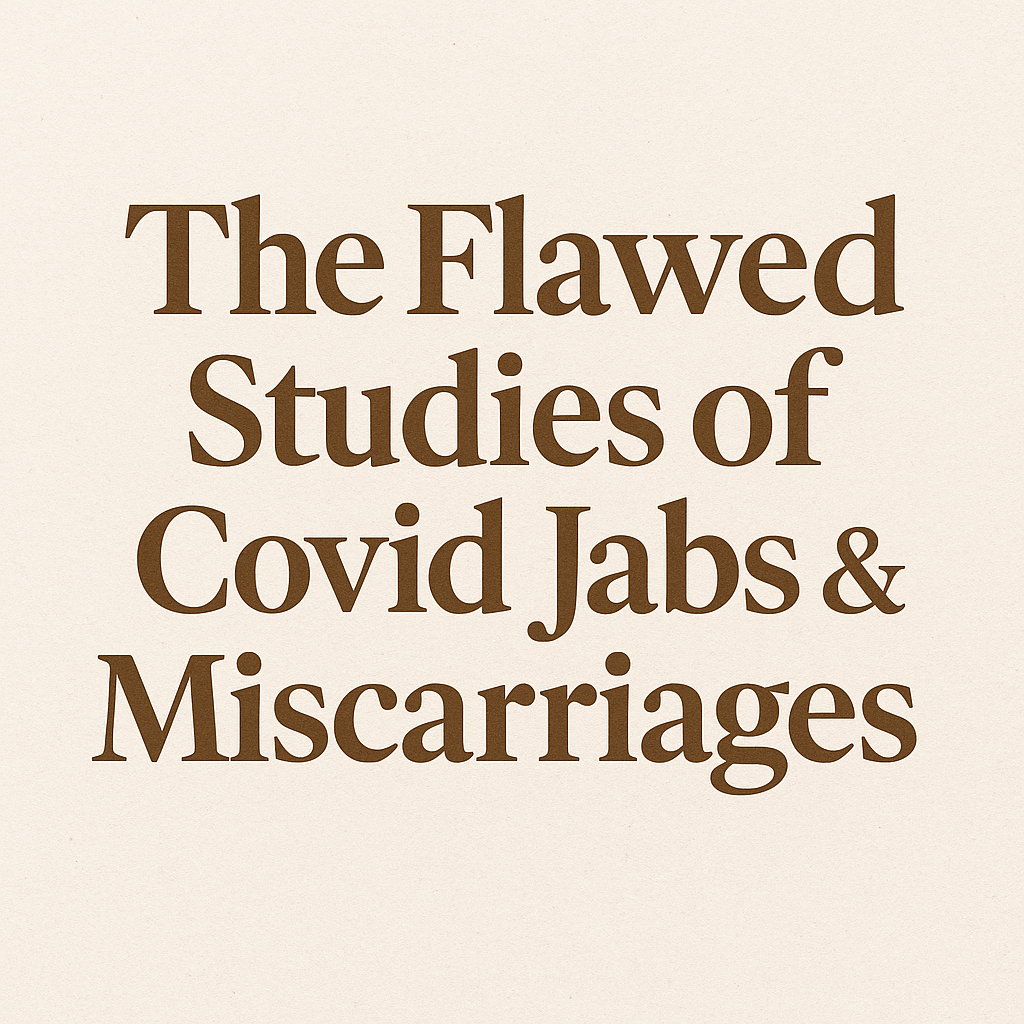
The Flawed Studies of Covid Jabs & Miscarriages
Share
What the data really said—and what they didn’t want you to notice.
🍼 Introduction: When Science Becomes Spin
In early 2021, as COVID-19 vaccines rolled out worldwide, pregnant women were told the shots were “safe and effective.” News headlines, public health agencies, and even doctors leaned on a study published in the New England Journal of Medicine (NEJM) as proof.
But there was just one problem:
The study didn’t prove what they claimed. In fact, the study didn’t even have enough data to assess early pregnancy risk.
The public was misled—not necessarily with lies, but with half-truths dressed up as “science.”
📊 What the NEJM Study Actually Did
The NEJM study followed 3,958 pregnant women who received mRNA COVID-19 vaccines. Researchers tracked several outcomes: live births, preterm deliveries, miscarriages, and stillbirths.
At the time of publication:
- 827 pregnancies had reached a known outcome—what researchers call a “completed pregnancy,” meaning the pregnancy had ended in either live birth, miscarriage, stillbirth, or medical termination.
- Most of these were third-trimester pregnancies, where miscarriage risk is already minimal.
- Only 127 women had been vaccinated during the first trimester, and most of those pregnancies were still ongoing when the study was published.
🚨 How the Public Was Misled
-
Lumping all trimesters together
A woman vaccinated at 36 weeks was treated the same as one vaccinated at 6 weeks. Late-term pregnancies, which are naturally low-risk for miscarriage, artificially “pad” the safety numbers. -
Publishing early, before outcomes were known
Only 10 of the 127 first-trimester pregnancies had full outcome data. Among those 10, 8 miscarried. That’s where the controversial “80% miscarriage rate” came from—but it was based on an incomplete and tiny sample. This misuse of the data was later addressed in a public retraction of a follow-up analysis that misrepresented the results. -
Allowing the incomplete study to shape public policy
Despite obvious data limitations, agencies like the CDC promoted this study to justify recommending vaccination at any stage of pregnancy. -
Dismissing real post-jab miscarriages
Women reported pregnancy loss after vaccination. Some were captured in VAERS reports, but officials responded with “no causal link found,” often without adequate investigation. Media outlets like Reuters explained that the 80% claim was based on misreading partial data.
🧬 What Later Studies Found
When more complete data came in, the miscarriage rate among vaccinated women was around 12.6%. That number aligns with the expected rate of miscarriage in the general population, which ranges from 10% to 20% of known pregnancies.
For context:
- Most miscarriages (about 80%) happen in the first 12 weeks of pregnancy.
- Early miscarriage rates drop after Week 8, and significantly after Week 12.
- Later studies, including a Norwegian analysis published in JAMA, found no increased miscarriage risk associated with COVID vaccination.
But here’s the issue: We never got a focused, trimester-by-trimester safety study. No one tracked jabbed first-trimester pregnancies from shot to birth—independently and transparently.
So when they said, “It’s safe in pregnancy,” they were mostly referring to third-trimester data—not the most vulnerable stages of life.
🕊 A Word to Women & Families
If you took the jab during pregnancy and experienced a miscarriage, you may have been told it was unrelated—or “just one of those things.” But you deserve better than dismissals.
The truth is: They didn’t know. And they said they did.
🕯 Faith Reflection
As believers, we know that life begins in the womb and that every child is known by God (Jeremiah 1:5). Science should never rush ahead of truth—or pretend to offer certainty where there is none.
When public health becomes a sales pitch, discernment is our defense.
⚖️ Conclusion
This isn’t about fear—it’s about accountability.
The NEJM study that fueled so many decisions was not designed to answer the question women were asking: “Is this safe for my baby?” It lumped pregnancies together, published too early, and ignored trimester-specific risks. It told part of the truth—the part they wanted you to hear.
That’s not science. That’s spin.
Written by Nana Creamer
Truth-seeker, Wellness Watchdog, and Voice of American Nana